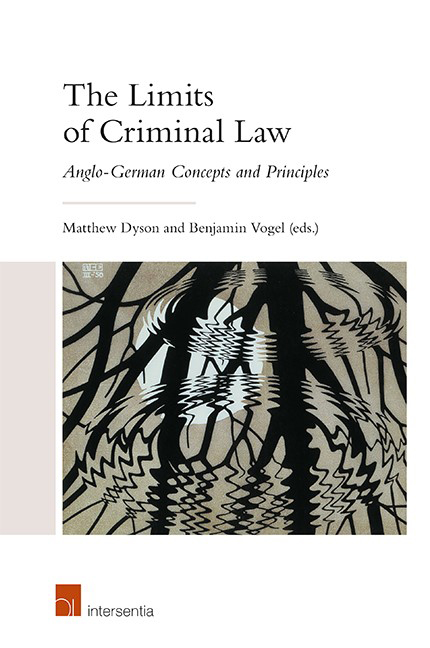Book contents
- Frontmatter
- Preface
- Contents
- List of Cases
- List of Abbreviations
- List of Contributors
- Chapter 1 Introduction
- PART I CORE PRINCIPLES OF CRIMINAL LAW
- PART II CRIME AND TORT
- PART III CRIME AND MEDICAL
- PART IV CRIME AND REGULATION
- PART V ADMINISTRATIVE SANCTIONS
- PART VI ALTERNATIVE ENFORCEMENT
- PART VII COUNTER-TERRORISM
- PART VIII CRIME AND INTELLIGENCE
- PART IX CONCLUSION
- Index
- About the Editors
Chapter 10 - Crime and Medical Compared: Between Autonomy and Public Interest
Published online by Cambridge University Press: 11 February 2021
- Frontmatter
- Preface
- Contents
- List of Cases
- List of Abbreviations
- List of Contributors
- Chapter 1 Introduction
- PART I CORE PRINCIPLES OF CRIMINAL LAW
- PART II CRIME AND TORT
- PART III CRIME AND MEDICAL
- PART IV CRIME AND REGULATION
- PART V ADMINISTRATIVE SANCTIONS
- PART VI ALTERNATIVE ENFORCEMENT
- PART VII COUNTER-TERRORISM
- PART VIII CRIME AND INTELLIGENCE
- PART IX CONCLUSION
- Index
- About the Editors
Summary
This pair of chapters looks at a paradigmatically lawful and valuable area of human endeavour, perhaps the most societally important conduct addressed in this volume, the role of medicine and how much criminal law could and should engage with it. That importance is reflected in both substantive and procedural rules, and value judgements about how they should be applied. Those judgements flow from society, through the imperfect prism of legal actors, from judges and advocates to jury members and politicians. One of those underlying value judgements is of restraint, that criminal law should only intervene in medical conduct in the most serious cases. This principle is articulated more clearly in Germany, through ultima ratio, namely that criminal law should be the last resort, and through subsidiarity, namely that criminal law should not create its own content when such content already exists in a more appropriate area of law. In Germany, there is a register of language, that headline pair of principles to do the work and be seen to be doing the work. In England, the same values are expressed through a narrower criminal law, and prosecutorial reluctance to engage the criminal law without serious fault. Both English and German lawyers take the view of medical law being at the ‘limit’ of criminal law, though, somewhat characteristically, in England they do so without feeling the need to deploy a detailed set of principles. There is no principle of subsidiarity, as was seen in Dyson's chapter on the relationship between criminal law and tort law, but there is still the underlying sense that civil law is better suited to defining certain fundamental questions, like capacity, and that medical disputes are better suited to the less blame-laden procedures of the civil courts.
The chapters demonstrate the primary role for civil law in setting the content of capacity and consent. German criminal law, like English criminal law, contains provisions rendering a defendant liable for a more than minimal interference in bodily integrity or well-being which was consensual but which violated public policy, though it is said that this limitation to the permissibility of consent should be applied with great restraint. English law criminalises even touching, without even requiring interference with the body or physical well-being, but prosecutions for such batteries seem particularly rare.
- Type
- Chapter
- Information
- The Limits of Criminal LawAnglo-German Concepts and Principles, pp. 195 - 204Publisher: IntersentiaPrint publication year: 2020

